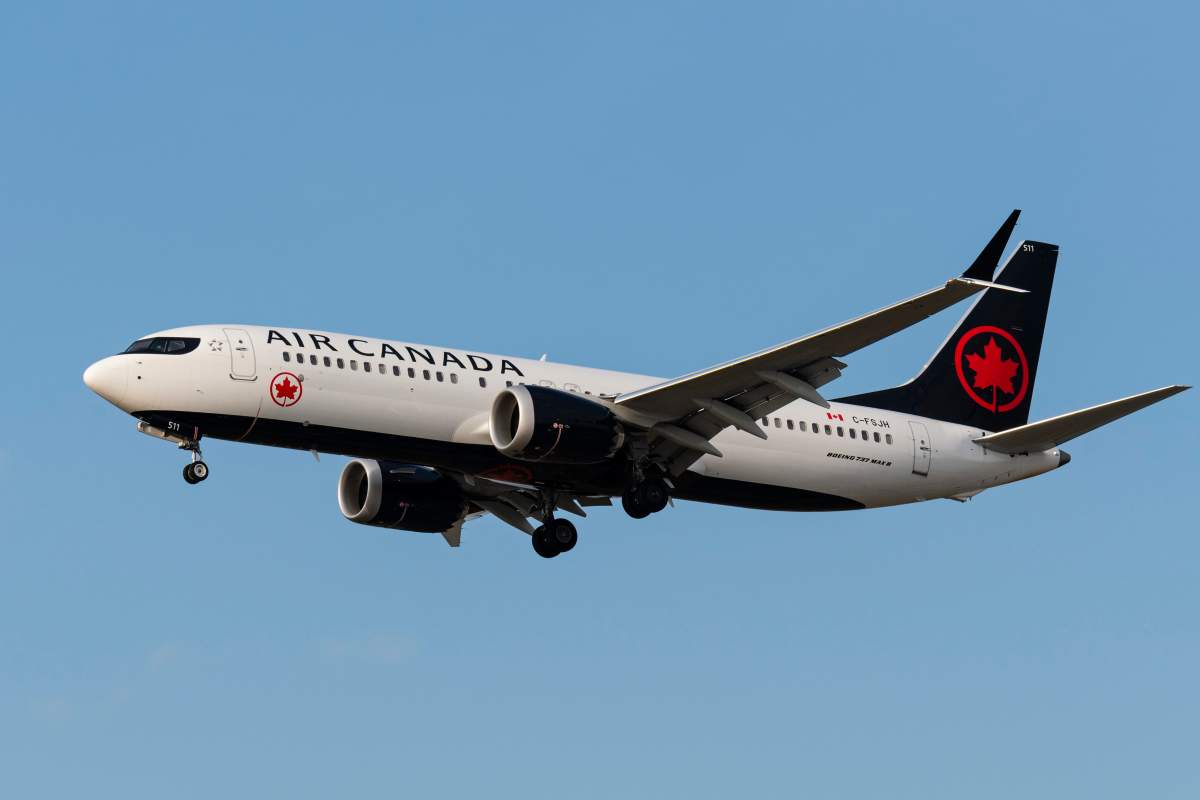Boeing has issued a bulletin to companies that operate its 737 Max planes a week after one crashed into Indonesia’s Java Sea and left 189 people dead.

Those companies could include Air Canada and WestJet, both of which continue to operate such aircraft.
Coverage of the Lion Air crash on Globalnews.ca
In a statement issued Wednesday, Boeing said the Indonesian National Transportation Safety Committee has indicated that Lion Air flight 610, which crashed minutes after taking off, encountered “erroneous input from one of its angle of attack (AOA) sensors.”
“Angle of attack” refers to the angle between relative wind and a reference line on the plane — the sensors’ purpose is to ensure that air flows over an aircraft’s wings, Bloomberg reported.
When these sensors break down, the plane can go into what’s known as “aerodynamic stall,” a status in which its wings can’t produce enough lift and the aircraft starts to dive.

Get breaking National news
READ MORE: Pilot of crashed Lion Air requested to return to airport shortly after takeoff
Boeing said in its statement that it had issued an operations manual bulletin (OMB) to 737 Max operators that advised flight crews to turn to existing procedures “where there is erroneous input from an AOA sensor.”
Air Canada officials says they are “following its recommendations” and monitoring all developments in regards to the safety bulletin. West Jet officials said they received the bulletin and are “following its guidance.”
The company went on to say that the investigation into what happened with Lion Air flight 610 is ongoing and that it would “co-operate fully and provide technical assistance” as requested.
Bloomberg had reported earlier that Boeing was set to issue a warning to companies using 737 Max airplanes about flight-information systems.
Meanwhile, the Wall Street Journal characterized Boeing’s bulletin as a “safety alert” covering “potentially suspect flight-control software that can confuse pilots and lead to a steep descent of the affected aircraft model.”
The newspaper said the findings suggest investigators could be looking at a software problem or a mistaken interpretation by flight crew as having played key roles in the Lion Air crash.
Canadian connection
The bulletin came as both Air Canada and WestJet continue to operate 737 Max aircraft.
WestJet confirmed to Global News that it has nine such aircraft.
In a statement, WestJet said it will follow the bulletin’s guidance and that it will “work with our partners at Boeing to ensure the continued safe operation” of 737 Max aircraft.
- China drops visa requirement for Canadian tourists, business visitors
- Inuit look to Greenland’s social model as Canada pursues military buildup in Arctic
- Epstein files fallout: People who’ve resigned or been fired after DOJ release
- Europe looks to boost its security, urges U.S. to ‘repair and revive trust’
READ MORE: Boeing aircraft in deadly Indonesia crash a popular new model in Canada and abroad
The airline became the first Canadian commercial operator to take delivery of such planes last year, saying at the time that it had 50 scheduled to come in the next five years.
Air Canada announced last December that its 737 Max aircraft had just started operating and was carrying passengers between Vancouver, Calgary, Edmonton, Toronto and Montreal.
The airline said at the time that it had 61 “firm orders” for the planes.
In its own statement, Air Canada also said it would follow the bulletin’s recommendations “as we do with all such advisories from manufacturers and government safety regulators.”














Comments
Want to discuss? Please read our Commenting Policy first.